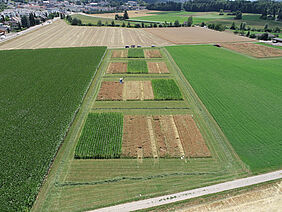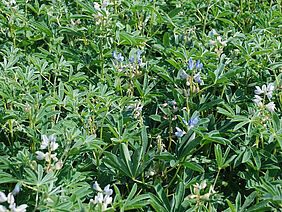DiverIMPACTS – Diversification through Rotation, Intercropping, Multiple Cropping, Promoted with Actors and value-Chains towards Sustainability – aims to achieve the full potential of diversification of cropping systems for improved productivity, delivery of ecosystem services and resource-efficient and sustainable value chains.
Part of the project builds on existing experiences of crop diversification by networking and expanding ten existing field experiments to quantify impacts of crop diversification. Maike Krauss from FiBL runs one of the field experiments, which looks at whether the intensive use of legume reduces the amount of fertilizer while sustaining yields and/or increases ecosystem services.
The project also has 25 multi-actor case studies that work with a range of actors to support and test crop diversification in many forms. Case study 6 and 20 are coordinated by Hansueli Dierauer and Sylvain Quiédeville from FiBL. Case study 6 looks at developing organic oilseed production with oilseed rape and hemp. The achievement of a cheaper and more simple way of cultivating organic oilseed rape may convince one of the main Swiss retailers (accounting for around 40 % of the sales) to start selling Swiss organic oilseed rape again. Case study 20 looks at intercropping for soya and blue lupines in association with cereal. Given the increasing demand for organic protein in Switzerland, the case study focuses on developing new systems to produce organic soya and blue lupines on a larger scale as feed for chickens and pigs, as well as increasing the supply of white lupines for human nutrition.
DiverIMPACTS is coordinated by Dr. Antoine Messéan of INRAE, the French National Research Institute for Agriculture, Food and the Environment and supported by the European Union's HORIZON 2020 research and innovation programme under Grant Agreement no 727482 and by the Swiss State Secretariat for Education, Research and Innovation (SERI) under contract number 17.00092.
Further information
Contacts
Links
- diverimpacts.net: DiverIMPACTS project website
- diverimpacts.net: The DiverIMPACTS case studies
- diverimpacts.net: The DiverIMPACTS field experiments
- diverimpacts.net: FiBL and its role in the project





![[Translate to Englisch:] Field with service crops](/fileadmin/_processed_/9/4/csm_dierauer-untersaaten_f850a9bdd5.jpg)
